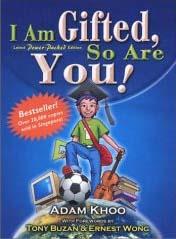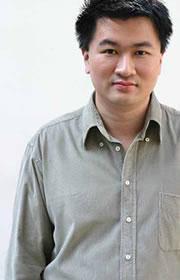your inner parent, child and adult
transactional analysis is a school of thought in psychology that helps explain the way we behave.
Extracting the following information from "Being: A Psychology of Self " :
" :
Transactional Analysis:
3 ego states: Parent, Child, Adult:
Parent
The Parent is part of yourself that contains all the external events that have happened to you. The parent in you feels and behaves in the same way your mother or father or whoever raised you did. Your parent can be critical, helping or both.
Child
At the same time external events are being recorded in your parent, a second series of recordings is being made simultaneously. The second set of tapes include all of your internal responses to the input of your parent. It is called your child because it includes what you were when you were little. Your child has the same feelings and ways of behaving that you had when you were very young. Your child may be natural, that is on it's own and not under the influence of your internal parent. or it may be adaptive so as to please your internal parent.
Adult
Your adult is the part of you that figures things out by looking at the facts. Your adult is an observer, a computer, and a decision maker. It is capable of looking at events in your life without the prejudices of your parent or the archaic feelings of your child. The adult is then capable of adding up these observations to see what needs to be changed. Your adult can make decisions and act on them. All in all, your adult is the key to personal change.
These 3 people within us (ego states) have some identifying characteristics or stock phrases. Whenever you hear a voice inside you saying 'you should' or 'don't' or mouthing slogans such as 'you can't win' or 'children should be seen and not heard' it is very likely your parent is talking.
Your child is more likely to say things like 'i want' 'try and make me' 'i feel' or just 'wow!'
Your adult tends to deal with observable facts and logic such as 'let's see now, the most efficient way to proceed would be...' or 'now what i hear you saying, John, is that'
---
Most of the time we're most aware of the motives of our 'adult', however our behaviour could be equally controlled by our parent and child.
What this means is that although we know we 'should' do something, if in the end, we slack off on doing it, or we do it obsessively, it could be motivation from our parent or child, although we may not be aware of it.
Unless we focus back on our past experience or childhood.
Researchers are finding out that our past experiences have a great effect on our current behaviour. But what's more interesting is not just WHAT happened to us when we were younger, but rather HOW we responded to what happened to us.
Take my friend, Adam Khoo, for example.
In his book, I Am Gifted, So Are You! ,
,

As a child in primary school (grade school), he had a bunch of "F" grade and had been expelled for mibehaviour and did so badly he was rejected by all the secondary schools (high schools) he had applied to. In fact, his results typically hovered at 40-55%. Among his entire cohort of 160 students, he crashed in amongst the bottom 10.
How do you think he might've turned out?
Destined to a life of disappointment and disdain?
Actually, the result will surprised you.
He experienced a turning point (read the book to find out!) and received ONE idea that had a tremendous impact on him.
Today he's (extracted from his bio): "A self-made millionaire by the age of 26, He owns and runs 3 different companies with a combined annual turnover of $20 million. He is the CEO & Managing Director of Adcom (S) Pte Ltd (a leading marketing communications and advertising agency), Founder & CEO of Adam Khoo Learning Technologies Group Pte Ltd (a premier training and consulting company that specializes in both corporate training and student education programmes), and the Co-Founder and Executive Director of Event Gurus Pte Ltd (an event management company)."
Adam, in my opinion, is an example that it's not WHAT happens to us, but rather HOW we react to WHAT happens to us, that determines our success or failure.
Many times, it's being aware of what our inner parent or child is saying that will help give us a better understanding and help us move up to the next level.
In personality psychology there is the concept of htThe "Wheel of Kookiness" (or wheel of weird).
It goes: It makes no difference whether the feedback someone gives you is valid or invalid. The important thing is whether you come to believe it. If you do, a vicious cycle begins. (and you become 'weirder' or worse)
----
More thoughts: researcher Seligman (1973) says:
One of the most important beliefs that a person can have of himself is that he is not helpless.
---
And Rother ends this with:
Your belief in yourself, as Rother (1971) has aptly pointed out, tends to be either that the environment controls you, or you it. Depression is a rare occurence for those who believe they have some control over their environment.
[all three extracts from Being: A Psychology of Self (may be hard to find, but libraries should stock copies)]
(may be hard to find, but libraries should stock copies)]
Extracting the following information from "Being: A Psychology of Self
Transactional Analysis:
3 ego states: Parent, Child, Adult:
Parent
The Parent is part of yourself that contains all the external events that have happened to you. The parent in you feels and behaves in the same way your mother or father or whoever raised you did. Your parent can be critical, helping or both.
Child
At the same time external events are being recorded in your parent, a second series of recordings is being made simultaneously. The second set of tapes include all of your internal responses to the input of your parent. It is called your child because it includes what you were when you were little. Your child has the same feelings and ways of behaving that you had when you were very young. Your child may be natural, that is on it's own and not under the influence of your internal parent. or it may be adaptive so as to please your internal parent.
Adult
Your adult is the part of you that figures things out by looking at the facts. Your adult is an observer, a computer, and a decision maker. It is capable of looking at events in your life without the prejudices of your parent or the archaic feelings of your child. The adult is then capable of adding up these observations to see what needs to be changed. Your adult can make decisions and act on them. All in all, your adult is the key to personal change.
These 3 people within us (ego states) have some identifying characteristics or stock phrases. Whenever you hear a voice inside you saying 'you should' or 'don't' or mouthing slogans such as 'you can't win' or 'children should be seen and not heard' it is very likely your parent is talking.
Your child is more likely to say things like 'i want' 'try and make me' 'i feel' or just 'wow!'
Your adult tends to deal with observable facts and logic such as 'let's see now, the most efficient way to proceed would be...' or 'now what i hear you saying, John, is that'
---
Most of the time we're most aware of the motives of our 'adult', however our behaviour could be equally controlled by our parent and child.
What this means is that although we know we 'should' do something, if in the end, we slack off on doing it, or we do it obsessively, it could be motivation from our parent or child, although we may not be aware of it.
Unless we focus back on our past experience or childhood.
Researchers are finding out that our past experiences have a great effect on our current behaviour. But what's more interesting is not just WHAT happened to us when we were younger, but rather HOW we responded to what happened to us.
Take my friend, Adam Khoo, for example.
In his book, I Am Gifted, So Are You!

As a child in primary school (grade school), he had a bunch of "F" grade and had been expelled for mibehaviour and did so badly he was rejected by all the secondary schools (high schools) he had applied to. In fact, his results typically hovered at 40-55%. Among his entire cohort of 160 students, he crashed in amongst the bottom 10.
How do you think he might've turned out?
Destined to a life of disappointment and disdain?
Actually, the result will surprised you.
He experienced a turning point (read the book to find out!) and received ONE idea that had a tremendous impact on him.
Today he's (extracted from his bio): "A self-made millionaire by the age of 26, He owns and runs 3 different companies with a combined annual turnover of $20 million. He is the CEO & Managing Director of Adcom (S) Pte Ltd (a leading marketing communications and advertising agency), Founder & CEO of Adam Khoo Learning Technologies Group Pte Ltd (a premier training and consulting company that specializes in both corporate training and student education programmes), and the Co-Founder and Executive Director of Event Gurus Pte Ltd (an event management company)."
Adam, in my opinion, is an example that it's not WHAT happens to us, but rather HOW we react to WHAT happens to us, that determines our success or failure.
Many times, it's being aware of what our inner parent or child is saying that will help give us a better understanding and help us move up to the next level.
In personality psychology there is the concept of htThe "Wheel of Kookiness" (or wheel of weird).
It goes: It makes no difference whether the feedback someone gives you is valid or invalid. The important thing is whether you come to believe it. If you do, a vicious cycle begins. (and you become 'weirder' or worse)
----
More thoughts: researcher Seligman (1973) says:
One of the most important beliefs that a person can have of himself is that he is not helpless.
---
And Rother ends this with:
Your belief in yourself, as Rother (1971) has aptly pointed out, tends to be either that the environment controls you, or you it. Depression is a rare occurence for those who believe they have some control over their environment.
[all three extracts from Being: A Psychology of Self


<< Home